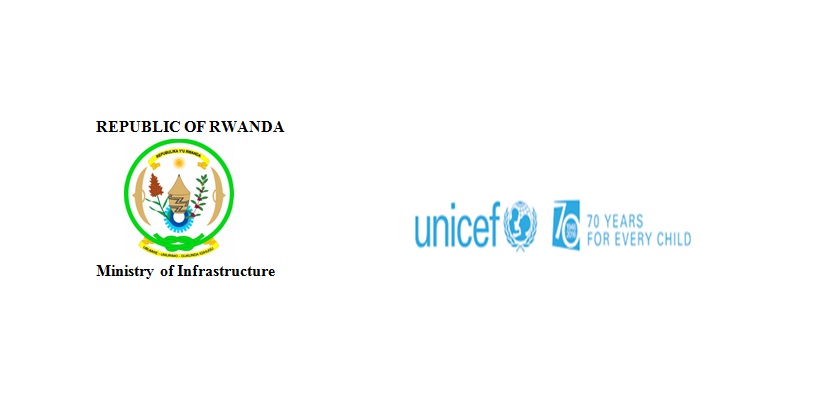December, 2016, Kigali, Rwanda On 9th December 2016, the Cabinet of Rwanda approved the National Drinking Water and Sanitation Policies and Strategies. Formulated by the Ministry of Infrastructure with the support of UNICEF, these policies and strategies aim to ensure sustainable, equitable, reliable and affordable access to water and sanitation services to all Rwandans, as a contribution to improving public health and socio-economic development.
“The new Rwanda National Drinking water and sanitation policies reinforce the Government’s commitment towards the prioritisation of water and sanitation”: The Government of Rwanda, being cognizant of the key role of water, sanitation and hygiene in the protection of public health, socio-economic development, and gender empowerment has committed itself to reaching the ambitious targets in water supply and sanitation: to attain 100% service coverage by 2020 as per the “Vision 2020” as well as achieving progress towards the Sustainable Development Goals.”
These new policies and strategies built on the experiences and lessons learnt from the implementation of the 2010 National Policy and Strategy for Water Supply and Sanitation Services with special consideration given to national priorities, the Sustainable Development Goals and emerging issues in Rwanda. They present an analysis of the major Water and Sanitation Sector challenges for both urban and rural areas and later provide direction for addressing these challenges, as well as implementation strategies with well-defined stakeholders’ roles and responsibilities; financial requirements; targets and monitoring mechanisms including targets and performance indicators.
Some of these emerging areas of concern include sector reforms, newly delegated management of water and sanitation efforts, climate change, urbanisation, solid and liquid waste management and harmonisation towards a sector-wide approach. The Government has therefore developed the new standalone policies for Water Supply and Sanitation services to ensure adequate prioritisation and targeting of water and sanitation related interventions.
The new sector policies and strategies will greatly contribute to meeting Sustainable Development Goal 6 that envisions universal, sustainable and equitable access to safe drinking water, sanitation, and hygiene, as well as the elimination of open defecation by 2030 all stakeholders are called to upkeep the implementation of these policies and strategies.
The new water and sanitation policies and strategies are a result of a comprehensive sector analysis, combined with a discussion and stakeholder consultation process led by a dedicated task force of ministries and sector partners. Four provincial workshops, a consultation workshop with the City of Kigali, several meetings of the sector working group and task force, and a national validation workshop were held to ensure adequate participation of all sector stakeholders.
The Ministry of Infrastructure, in collaboration of key ministries and sector partners, plans to disseminate the new policies and strategies in early 2017. An implementation coordination committee will also be established and will meet every six months in order to monitor implementation of the policies and strategies.
By Eng. Aime Muzola, Head of Policy and Planning in Ministry of Infrastructure and Dr. Malik Murtaza, Water, Sanitation and Hygiene Manager in UNICEF

 ENGL
ENGL KINY
KINY